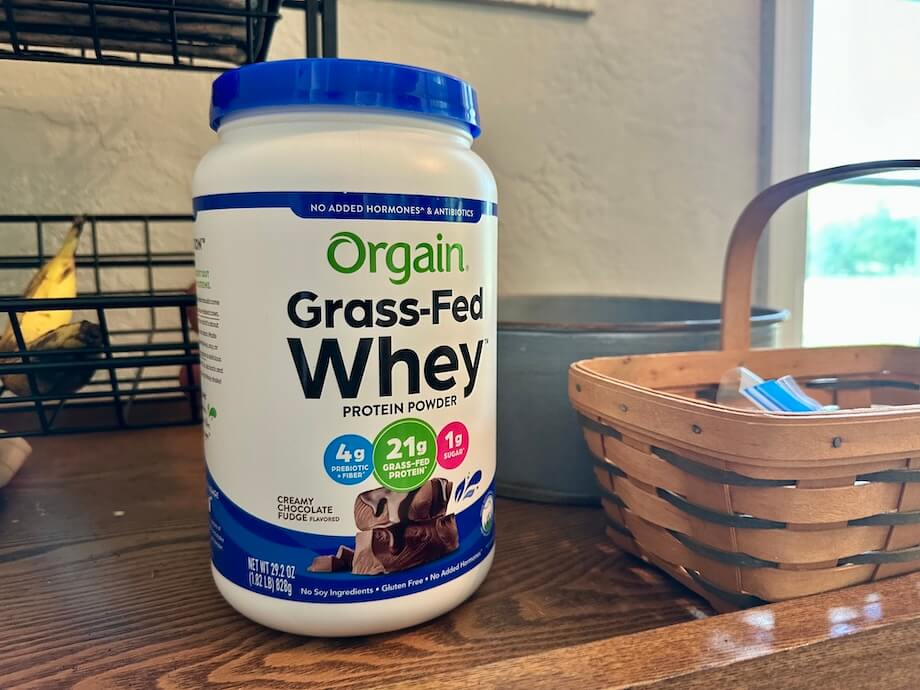It’s common to turn to diet pills to reach weight loss goals. But doing so can be not just a waste of money—but also dangerous.
For some people, losing weight is about feeling more comfortable in their own skin. For others, losing weight is a matter of managing conditions like chronic high blood sugar, hypertension, or heart disease. No matter the reason, those struggling with weight gain may consider turning to weight loss supplements or diet pills to help them lose weight.
In this guide, we break down various types of supplements and medications people commonly turn to during their weight loss journey. With the help of registered dietitian Destini Moody, we put together this guide to weight loss pills that don’t work, can be dangerous, or are reserved for prescription use only. This content was also reviewed by two medical professionals in my family: My mom, Kerri Kittrell, nurse practitioner, and my stepfather, Dr. Jimmy Kittrell, internal medicine physician.
If you are looking for weight loss products that can actually help (and improve your health while at it), read our guide to the best weight loss supplements, also developed in collaboration with dietitians and medical professionals.
Medical disclaimer: This article is intended for educational and informational purposes only. It is not intended as a substitute for medical advice. For health advice, contact a licensed healthcare provider.
Banned Substances
Let’s start with the drugs that pose the biggest threat to your overall health: substances that are banned for use in over-the-counter supplements and medications.
Clenbuterol
Clenbuterol is banned for human use1, even prescriptive, in the U.S. It belongs to a class of drugs called beta-2-adrenergic agonists. It goes by the street name Clen and is known to be abused in bodybuilding communities for its ability to reduce body fat and increase skeletal muscle.
Beta-2-adrenergic agonists have the opposite effect of beta-blockers: They stimulate the central nervous system, increasing heart rate and blood circulation. But clenbuterol has “specific anabolic activity and increased lipolysis that is not seen with other beta agonists,” according to the 2011 literature review in the Journal of Medical Toxicology2.
Among people who used clenbuterol to lose weight or build muscle, side effects such as abnormally high heart rate, chest pain, and heart palpitations have been reported3.

Phenylpropanolamine (PPA)
This substance is structurally similar to ephedrine, according to the 2011 literature review in the Journal of Medical Toxicology2. Also structurally similar to amphetamines, PPA suppresses appetite4 by acting on the central nervous system.
PPA was banned for over-the-counter sale in 2000 for its association with cardiovascular events and conditions including hemorrhagic stroke5. Even so, the 2010 Annual Report6 of the American Association of Poison Control Centers reported 42 cases of PPA use in diet aids.
Dinitrophenol (DNP)
If you see any product advertising it includes DNP, run. This synthetic chemical7 was available as an OTC weight loss supplement in the 1930s, but it was removed from the market after reports of serious adverse effects.
Just because it was banned for OTC sale, however, does not mean people can’t get it8. In 2006, there were two reports of death9 attributed to DNP consumption.
Ma Huang/Ephedra
Ephedra was the subject of a widely publicized FDA imposition10, notably on the company Herbalife, which in the late 1990s and early 2000s was using ephedrine, the bioactive compound in the ephedra plant, in its teas and supplements.
Ephedrine is a stimulant associated with cardiovascular and neurological problems, and even death and permanent disability, according to a 2000 review of complaints11 submitted to the FDA between 1997 and 1999.
The FDA banned12 supplements containing ephedra in 2004.
Off-Label Prescription Medications

As part of the fight against obesity in the United States, the FDA has approved several prescription drugs for weight management in adults. When used as prescribed and under medical supervision, these drugs are effective and safe. However, it’s inadvisable (and potentially dangerous) to use them in an off-label manner.
Glucagon-Like Peptide 1 (GLP-1) Receptor Agonists
GLP-1 agonists induce weight loss by mimicking the GLP-1 hormone your body releases in response to eating, according to the FDA13. This hormone stimulates the release of insulin after eating to remove glucose from the blood. It also delays gastric emptying, which makes you feel fuller for longer.
You may have heard of GLP-1 agonists by the name of semaglutide (generic name of the class of medication), Ozempic (branded prescription injection for type 2 diabetes), Rybelsus (branded oral medication for type 2 diabetes), or Wegovy (branded injection for adults with obesity and overweight). All three of these drugs have specific prescriptive criteria, including body mass index (BMI) requirements for use.
These are prescription weight loss medications with a proven efficacy for weight loss, but off-label use of them has become extremely problematic.
“This is especially triggering for me as a dietitian because now I am having diabetic clients and patients coming to me and saying it’s becoming more and more difficult to obtain their medication,” says registered dietitian Destini Moody, “because of the surge in popularity of people buying up these prescription products just because they don’t know how to properly diet and exercise.”
Destini Moody, RD, CSSD,LD
If that sounds harsh, good. Prescription medications should be reserved for those who need them, which in the case of semaglutide, are people with diabetes and people on medically supervised weight loss programs.
Side effects of semaglutide include gastroparesis14, a condition that slows or, in serious cases, completely stops the movement of food from your stomach into your small intestine.
Additionally, Novo Nordisk, the manufacturer of semaglutide, published a press release15 stating that they have not relinquished the patent to the medication and they do not endorse, approve, or encourage the use of off-label semaglutide products. In fact, Novo Nordisk has said that the company cannot confirm the efficacy or safety of non-prescription products claiming to include generic semaglutide.
Orlistat
Another prescription drug, Orlistat (branded Xenical and Alli) alters fat metabolism in the body. It inhibits lipases16, which are enzymes that break down dietary fats. Essentially, taking this medication prevents your body from absorbing most of the fats you eat—and thus absorbing calories from those fats.
Xenical is a prescription-only medication and should be reserved for those who need the prescription and are taking it under a doctor’s care. Alli is available as an OTC medication; according to the Mayo Clinic17, side effects include stomach pain, oily stools, more frequent bowel movements, urgent bowel movements, headaches, menstrual changes, and more.
Orlistat has been abused18 among people with eating disorders, and anorexia and bulimia are considered contraindications to taking this medication.
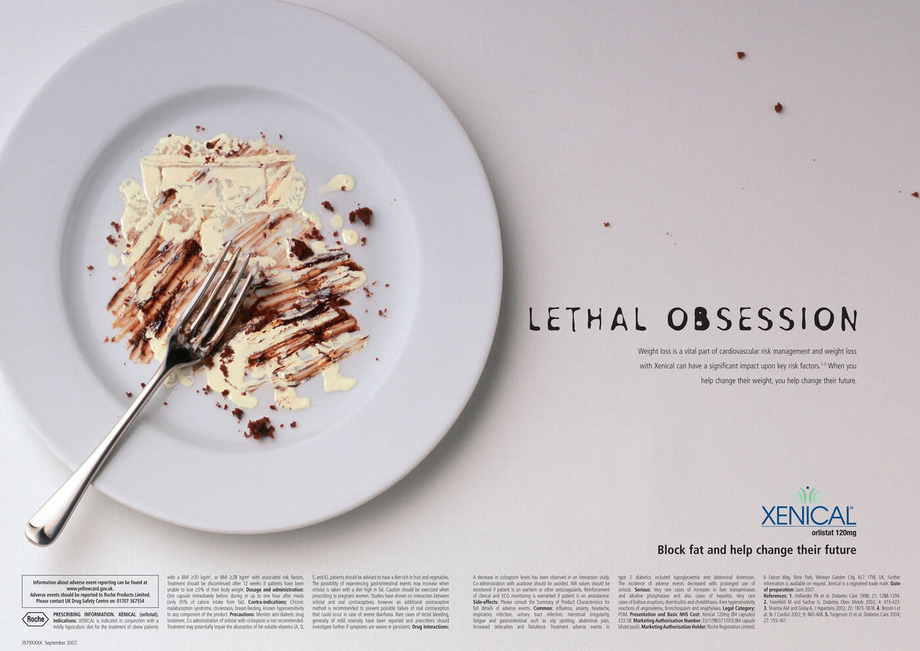
Fenfluramine and Phentermine
Have you heard of Fen-Phen®? That drug was a combination of fenfluramine and phentermine. Popular in the 1980s and 90s, more than 18 million prescriptions were written for fenfluramine, and an increasing number of patients were being seen for heart and lung problems, according to a 1997 study19.
Ultimately, fenfluramine and the combo drug Fen-Phen® were withdrawn from the market in 199765, but phentermine is still available with a prescription. It’s often prescribed in combination with another drug called topiramate (combo branded as Qsymia), and this combo is approved for long-term use with monitoring every 12 weeks, according to the National Library of Medicine20.
Like semaglutide medication, phentermine and topiramate medications should be reserved for those who need them and are participating in a medically supervised weight loss program.
Human Chorionic Gonadotropin (HCG) Hormone
HCG hormone is a fraudulent weight loss product typically marketed as something that “resets your metabolism” or “helps your body burn fat faster.” HCG is used to treat fertility issues, and HCG supplements are not approved for over-the-counter use.
The FDA issued a notice in 201121 mandating that manufacturers remove HCG products marketed as weight loss drugs from the market.
The FDA said in the press release, “There is no substantial evidence HCG increases weight loss beyond that resulting from the recommended caloric restriction” and “These HCG products marketed over-the-counter are unproven to help with weight loss and are potentially dangerous even if taken as directed.”
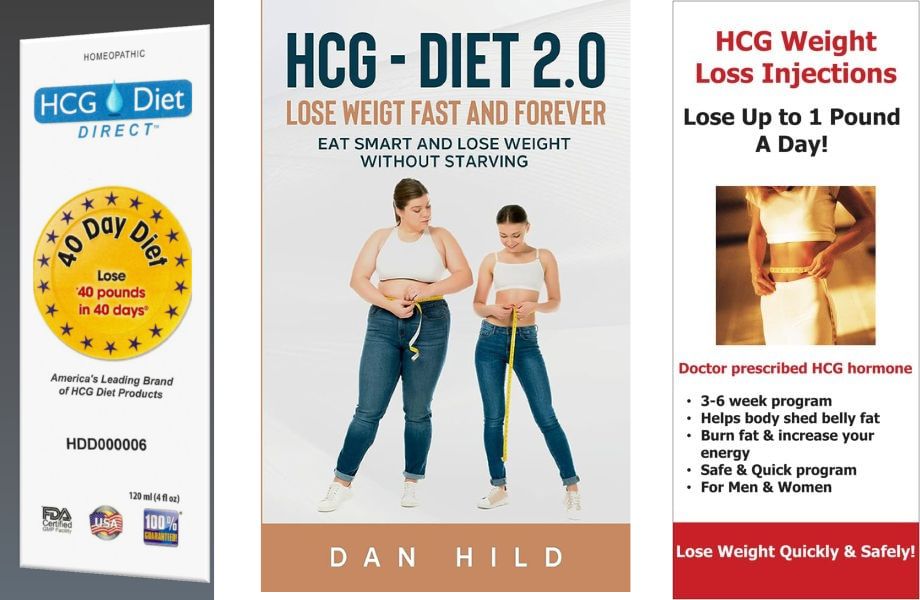
Ipecac
This medication is used to speed up gastric emptying by inducing vomiting. It was approved for over-the-counter use in 1965 and is used clinically to rid the body of ingested toxins, according to a literature review, Toxicity of Weight Loss Agents, published in the Journal of Medical Toxicology2 in 2011.
Ipecac is not a banned substance, but use—especially without medical supervision—is highly discouraged due to reports of severe adverse effects. The most commonly reported effects22 include cardiovascular problems such as chest pain, tachycardia (high heart rate), and hypotension (low blood pressure).
Naltrexone and Bupropion
Naltrexone treads alcohol use disorder and opioid use disorder; bupropion treats depression. The combined drug is branded as Contrave23, which is an oral medication that is FDA-approved for weight management in adults. It was approved in 2014 and has a proven efficacy for weight loss24.
However, like with all prescription weight loss drugs, long-term lifestyle changes are required for lifelong benefits. And again, this drug should not be used in an off-label manner because the manufacturer of the medication cannot guarantee safety for such use.
Over-The-Counter Medications
Certain over-the-counter drugs have been known to be abused for weight loss purposes, namely laxatives and diuretics.
Laxatives
Laxatives, as you probably know, speed up solid waste excretion by softening stool. Laxative abuse25, including using laxatives to expel calories or “feel empty,” is common among people with eating disorders and disordered eating behaviors.
This is dangerous behavior because, over time, the gastrointestinal tract can build up a tolerance to laxatives and require higher doses for the same outcome, according to a 2020 review of case studies26. What’s more, “Chronic laxative use can cause irreversible damage to the smooth muscles comprising the intestine,” the review states.
Additionally, research shows27 that laxative abuse can result in altered electrolyte levels and acid-base balance in the body, which requires hospitalization in severe cases.

Diuretics
Diuretics, like laxatives, are commonly abused28 among populations with eating disorders. They are also often used by athletes who need to “make weight” or achieve a specific body composition for competition, such as wrestlers and bodybuilders. Because of such abuse, diuretics are actually on the banned substances29 list put forth by the World Anti-Doping Agency (WADA).
Also known as “water pills,” diuretics stimulate urination, resulting in water weight loss if fluids are not replenished. Not only can this lead to dehydration, but it can alter electrolyte balance in the body and lead to hyponatremia, or low sodium levels in the blood. Hyponatremia30 is a dangerous condition and can cause headaches, nausea, vomiting, muscle cramps, altered mental state, and in severe cases, seizures.
Fat Burners and Appetite Suppressants
These types of supplements are often marketed as “metabolism boosters.” Some have merit, but aren’t yet proven to work, such as capsaicin; others pose dangers to your health. This section takes a look at some of the most popular fat burners and appetite suppressants.
Capsaicin
Capsaicin and capsaicinoids are found in chilis like cayenne peppers and give them their spicy effect. Found in popular weight loss supplements including Capsimax Powder, PhenQ, and Instant Knockout, capsaicin has been proposed as a weight reduction aid for its ability to increase fat oxidation in the body and reduce food intake.
According to the U.S. Office of Dietary Supplements31 (ODS), capsaicin may have a moderate effect on calorie intake but no studies have shown a reduction in body weight after several weeks of supplementation. Side effects are mild, but possible with doses of 4 milligrams per day. They include gastrointestinal distress, elevated insulin, and decreased HDL cholesterol.

Garcinia Cambogia
Does Hydroxycut sound familiar? Garcinia cambogia contains a substance called hydroxycitric acid (HCA), which was previously an active weight loss aid in Hydroxycut products. In 2009, the FDA issued a warning32 to consumers to immediately stop using Hydroxycut products due to 23 reports of health problems, including liver damage and one death. Hydroxycut products were recalled but later re-introduced to market with modified formulas, according to a 2020 scientific report33, yet cases of liver damage continued to present.
The notice did not specify HCA as the cause of the health problems, but research34 has associated Garcinia cambogia and HCA with serious concerns, including liver damage. According to the ODS31, there are also three cases of mania associated with products containing HCA. “Because all clinical trials of Garcinia cambogia and HCA have been short, its long-term safety is unknown,” the ODS says.
Yohimbe Extract
There are “significant safety concerns reported” for yohimbe extract or yohimbine, “especially for yohimbine doses of 20 milligrams or higher,” the ODS reports31. Yohimbe extract is banned in several countries35, including the UK, Australia, and Canada, for effects including high blood pressure, high heart rate, agitation, anxiety, headaches, heart failure, heart attack, and even death.
The really terrifying part is that the ODS reports inaccurate labeling of supplements containing yohimbe.
“A 2015 analysis36 determined that only 22% of 49 dietary supplements containing yohimbe or yohimbine listed the quantity of yohimbine on the product label,” The ODS reports. “Many of these amounts were not accurate, and the actual content of yohimbine ranged from 23% to 147% of the labeled amount.”
U.S. Office of dietary supplements
a-LACYS RESET®
This patented compound includes cysteine and alpha-lipoic acid (ALA). Some research37 suggests that ALA is effective at reducing body weight, but not cost-effective due to a need for high doses (60038 to 1,20039 milligrams per day).
Cysteine, an amino acid, is thought to suppress ghrelin40, the hormone that signals hunger, but more research is needed to confirm its effects as a supplement on weight loss.
a-LACYS RESET® is the key ingredient in the fat burner pill PhenQ. PhenQ claims that this ingredient has resulted in an average fat loss of 7.45%, 3.44% drop in body mass, and 3.8% increase in lean mass. According to the website, a series of trials published in 2014 support this, but the studies are nowhere to be found. I searched the National Library of Medicine literature database and the term “a-lacys reset” was not even recognized by the database.
I then looked to the citation provided by PhenQ to see if I could find the studies. There’s no link or DOI (digital object identifier) for any of the studies—just a note that says “PDF of published 2014 trials.” Published where?
I even checked out the website of the ingredient manufacturer PhenQ listed in the citation—Principium Beauty Systems Innovations or Principium-BSI—and a-LACYS RESET® is not listed on that website.
Finally, my research revealed that another company by the name of Nutraceuticals Group might be a manufacturer of a-LACYS RESET®. So I ran a search on that company’s website, too, and still found nothing.
If that’s not enough, you should know that PhenQ contains this ingredient in a very small amount of 25 milligrams, which isn’t anywhere close to the effective ALA dose of 600 milligrams.
Registered dietitian Destini Moody says, “Any weight loss pill whose main mechanism is to ‘control carb cravings’ but really what it does it zap your appetite with caffeine, doesn’t get many points with me.”
“Malnourishment is the obvious reason, she says, “but the big one for me is it doesn’t teach consumers how to properly control their intake to maintain their weight loss when they come off of the drug.”
Other Unproven Or Potentially Dangerous Supplements
Finally, let’s look at supplements that are either unproven for weight loss, potentially dangerous to use as a weight loss supplement, or both. In some cases, substances marketed for weight loss are possibly benign but just a waste of money.
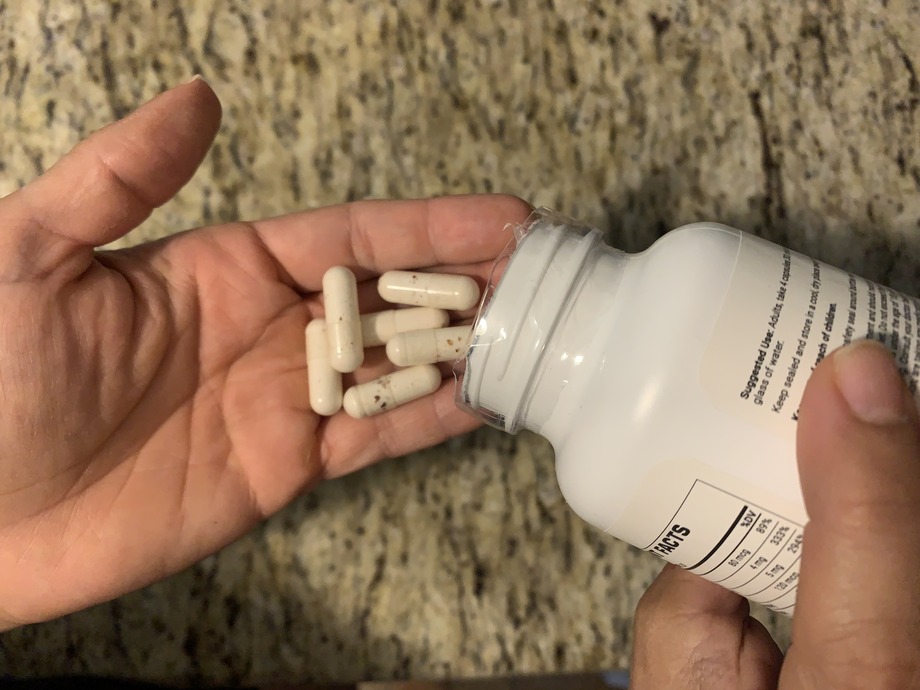
Beta-hydroxybutyrate (BHB) and Other Ketones
BHB41 is a chemical made by the body. It’s a ketone synthesized from fatty acids and provides energy to the body when there is not enough glucose present for the body’s energy demands. As such, people who eat keto diets tend to have high levels of BHB.
Knowing this, it won’t surprise you that BHB is available as a supplement to augment, or assist or improve, ketosis. People may use exogenous ketones like BHB to jumpstart ketosis or to stay in ketosis even when they eat more carbohydrates than usual; some people even use ketones to simulate the effects of a ketogenic diet while continuing to eat a high-carb diet.
There is some research42 showing that ketone salts, including BHB, effectively promote weight loss. However, registered dietitian Destini Moody doesn’t recommend this approach because of the potential for BHB to alter blood acid composition.
Exogenous ketones can also cause gastrointestinal distress, Destini points out. Ultimately, she says more research is needed to confirm the long-term efficacy and safety of BHB, and that the money is better spent on healthy whole foods.
If you want to benefit from ketones, try eating a keto diet. See the best keto meal delivery services.

Cannabinoid Antagonists
Cannabinoids (like THC) stimulate appetite and cause you to eat (yes, I’m talking about “the munchies”). Cannabinoid antagonists, then, do the opposite. They dampen appetite, thereby reducing food intake and leading to weight loss, according to a 2018 report in the International Journal of Molecular Sciences43.
Unfortunately, like the other substances in this list, adverse effects have been reported; in this case psychiatric effects were included. Side effects include nausea, anxiety, depression, fatigue, and dizziness.
Additionally, much more research is needed to confirm the long-term safety and efficacy of CB-1 antagonists, according to a 2020 review in the journal Biomolecules44.
Chromium Picolinate
Chromium picolinate is a form of the mineral chromium and it’s often the form found in dietary supplements. When taken in reasonable quantities, chromium picolinate is generally considered safe. It’s thought to assist with weight loss by reducing hunger45, but trials have produced unclear and unconvincing results.
A 2013 literature review46 concluded that there was “no current, reliable evidence to inform firm decisions about the efficacy and safety” of chromium picolinate in overweight adults; another analysis47 concluded the same. A more recent review from 201948 echoes: “The role of chromium as a weight loss agent remains questionable.”
Additionally, there are some reports of health effects when consumed in excess, including kidney problems49.
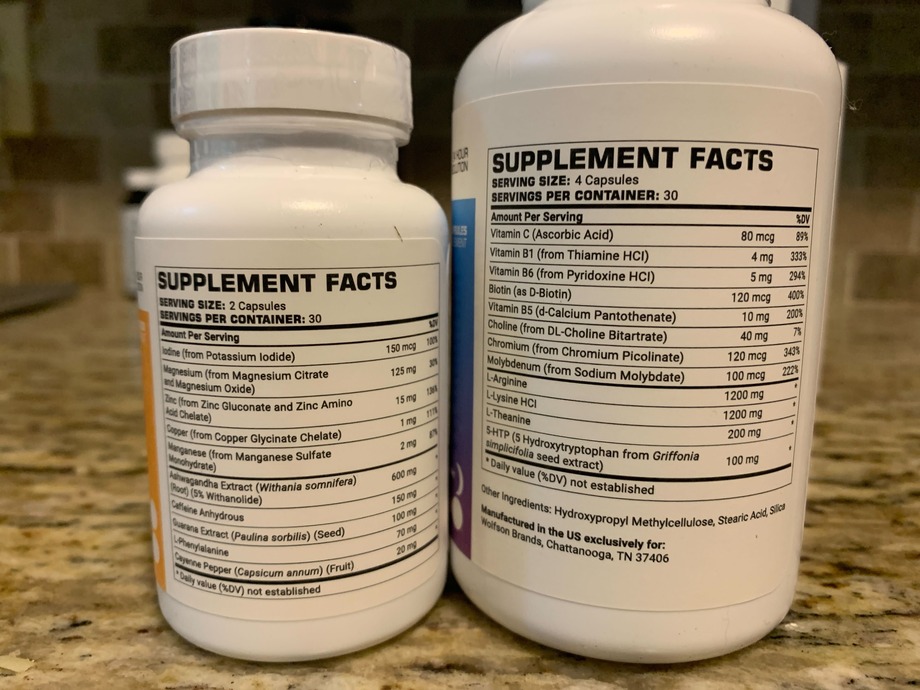
Conjugated Linoleic Acid (CLA)
Conjugated linoleic acid is a fatty acid thought to increase the breakdown of fats and initiate apoptosis (death) of fat cells. The Office of Dietary Supplements31 (ODS) reports that CLA supplementation seems to reduce fat mass in animals, but “results from human studies suggest that its effects are small and of questionable clinical relevance.”
There are also adverse effects to consider, including abdominal pain, constipation, diarrhea, loose stools, and indigestion, the ODS says.
Carnitine
L-carnitine is an amino acid and a popular sports supplement that has been studied for its potential effects on exercise performance. Carnitine supplements have also been used for weight loss, and the ODS reports31 that they may have a “possible modest reduction in body weight” but findings aren’t conclusive.
Additional long-term research is needed, because carnitine supplementation has been shown to increase levels of a chemical called trimethylamine-N-oxide (TMAO)50 in the body, a substance that might increase the risk of cardiovascular disease, according to the ODS. Since its efficacy for weight loss isn’t proven, we don’t think it’s worth the risk to use it for that purpose.
Piperine
Piperine is a compound found in black pepper that seems to increase nutrient absorption. It’s in a lot of supplements, from pre-workout powders to recovery matrixes. It’s also in some fat loss supplements, including the popular PrimeShred.
There are many emerging benefits of piperine, but it’s unclear if weight loss is one of them. Some research shows promising results in rats51 and mice52, but there’s currently no evidence to support piperine as a weight loss aid for people.
That said, combining piperine with other supplements may help you get more benefit from those supplements. A common combo is piperine with curcumin, the active compound in turmeric, and this may help enhance the antioxidant benefits of curcumin.

Chlorogenic Acid
Present in green coffee bean extract, chlorogenic acid is an anti-inflammatory compound with antioxidant effects. A 2011 review of three studies53 on the effects of green coffee bean extract on weight loss concluded that “the results from these trials are promising, but the studies are all of poor methodological quality.”
More recently, in 2017, researchers concluded54 from trial results that a low-calorie diet in combination with green coffee bean extract resulted in weight loss. And in 2019, researchers found55 that coffee high in chlorogenic acid reduced belly fat in overweight adults in conjunction with a calorie deficit. So there is promise here, but more research is needed.
Worth noting, L-theanine is another ingredient you may see in weight loss supplements. It’s also found in coffee and is often included to prevent the jittery effects of supplements high in caffeine. On its own, it is not known to result in weight loss in people. Caffeine, however, can give you the energy boost you need to perform a longer or more intense workout, leading to more calorie burn. See our recommendations for the best pre-workout if you’re in need of a caffeine supplement.
Green Tea Extract
The most we can say about green tea extract is that it may have a “possible modest effect on body weight,” according to the U.S. Office of Dietary Supplements31. Additionally, the ODS says there is “increasing evidence” that green tea extract as a supplement (not green tea as a beverage) may be associated with liver damage.
Weight Loss Pills That Don’t Work: Final Thoughts

There’s no shortage of drugs and supplements that claim to induce weight loss. Few actually work, and most that do are approved on a prescription-only basis. Even the ones that do work are likely to be short-term solutions unless you also implement healthy lifestyle habits, and several have a history of serious adverse health effects and even death.
The only tried-and-true way to lose weight and keep it off for good is to establish a caloric deficit and maintain it until you reach your goal weight, and then continue to engage in physical activity and eat a nutritious diet to maintain your new body weight.
Finally, if none of this has convinced you to stay away from diet pills, registered dietitian Destini Moody has some parting advice.
“If you’re concerned about efficacy, in any case, I would compare the dosage of the active ingredients used in the studies to the dosage included in the product. Weight loss drugs have a nasty habit of citing ingredients that are ‘clinically effective’ but conveniently not including enough of that ingredient to cut costs.”
Destini Moody, RD, CSSD, LD
Weight Loss Pills That Don’t Work: Q&A
What is the best diet pill?
There is no best diet pill. There are some supplements that may assist with weight loss while imparting other health benefits, which you can read about in our guide to the best weight loss supplements.
Are weight loss pills a placebo?
Some weight loss pills are probably placebos. Some contain ingredients that might cause weight loss but can be dangerous; some contain ingredients that aren’t proven to work for weight loss; and others are medications that require a prescription for use.
What helps with food cravings?
If you’re struggling with cravings, try adding more protein into your diet. Protein is known to help with satiety, or feeling full. Take stock of your sleep quality, too: Poor sleep is associated with food cravings, snacking, and trouble sticking to a healthy diet.
These statements have not been evaluated by the Food and Drug Administration. This product is not intended to diagnose, treat, cure, or prevent any diseases.
References
- U.S. Drug Enforcement Administration. Clenbuterol. 2019;12.
- Yen M, Ewald MB. Toxicity of weight loss agents. J Med Toxicol. 2012;8(2):145-152. doi:10.1007/s13181-012-0213-7
- Spiller HA, James KJ, Scholzen S, Borys DJ. A descriptive study of adverse events from clenbuterol misuse and abuse for weight loss and bodybuilding. Subst Abus. 2013;34(3):306-312. doi:10.1080/08897077.2013.772083
- Wellman PJ. The pharmacology of the anorexic effect of phenylpropanolamine. Drugs Exp Clin Res. 1990;16(9):487-495.
- Forman HP, Levin S, Stewart B, Patel M, Feinstein S. Cerebral vasculitis and hemorrhage in an adolescent taking diet pills containing phenylpropanolamine: case report and review of literature. Pediatrics. 1989;83(5):737-741.
- Bronstein AC, Spyker DA, Cantilena LR Jr, Green JL, Rumack BH, Dart RC. 2010 Annual Report of the American Association of Poison Control Centers’ National Poison Data System (NPDS): 28th Annual Report [published correction appears in Clin Toxicol (Phila). 2014 Dec;52(10):1285]. Clin Toxicol (Phila). 2011;49(10):910-941. doi:10.3109/15563650.2011.635149
- Centers for Disease Control, Agency for Toxic Substances and Disease Registry. Dinitrophenols. 2021;02(10).
- Petróczi A, Ocampo JA, Shah I, et al. Russian roulette with unlicensed fat-burner drug 2,4-dinitrophenol (DNP): evidence from a multidisciplinary study of the internet, bodybuilding supplements and DNP users. Subst Abuse Treat Prev Policy. 2015;10:39. Published 2015 Oct 14. doi:10.1186/s13011-015-0034-1
- Miranda EJ, McIntyre IM, Parker DR, Gary RD, Logan BK. Two deaths attributed to the use of 2,4-dinitrophenol. J Anal Toxicol. 2006;30(3):219-222. doi:10.1093/jat/30.3.219
- Gugliotta, Guy. FDA Takes Aim at Ephedra. The Washington Post. 2000;03(19).
- Haller CA, Benowitz NL. Adverse cardiovascular and central nervous system events associated with dietary supplements containing ephedra alkaloids. N Engl J Med. 2000;343(25):1833-1838. doi:10.1056/NEJM200012213432502
- U.S. Office of Dietary Supplements, National Institutes of Health. FDA Prohibits Sales of Dietary Supplements Containing Ephedra.
- U.S. Food and Drug Administration. Medications Containing Semaglutide Marketed for Type 2 Diabetes or Weight Loss. 2023;05(31).
- U.S. Department of Health and Human Services, National Institute of Diabetes and Digestive and Kidney Diseases. Gastroparesis.
- Novo Nordisk. Press Release: Novo Nordisk takes actions to help protect US patients from unlawful sales of non-FDA approved medicines claiming to contain semaglutide. 2023;06(20).
- Bansal AB, Al Khalili Y. Orlistat. [Updated 2022 Dec 11]. In: StatPearls [Internet]. Treasure Island (FL): StatPearls Publishing; 2023 Jan-. Available from: https://www.ncbi.nlm.nih.gov/books/NBK542202/
- Mayo Clinic. Alli Weight-Loss Pill: Does It Work? 2022;03(12).
- Deb KS, Gupta R, Varshney M. Orlistat abuse in a case of bulimia nervosa: the changing Indian society. Gen Hosp Psychiatry. 2014;36(5):549.e3-549.e549004. doi:10.1016/j.genhosppsych.2014.05.006
- Wadden TA, Berkowitz RI, Silvestry F, et al. The fen-phen finale: a study of weight loss and valvular heart disease. Obes Res. 1998;6(4):278-284. doi:10.1002/j.1550-8528.1998.tb00350.x
- National Library of Medicine, Medline Plus. Phentermine and Topiramate. 2022;10(15).
- U.S. Food and Drug Administration, Federal Trade Commission. Press Release: FDA, FTC act to remove “homeopathic” HCG weight loss products from the market. 2011;12(06).
- Palmer EP, Guay AT. Reversible myopathy secondary to abuse of ipecac in patients with major eating disorders. N Engl J Med. 1985;313(23):1457-1459. doi:10.1056/NEJM198512053132306
- Sherman MM, Ungureanu S, Rey JA. Naltrexone/Bupropion ER (Contrave): Newly Approved Treatment Option for Chronic Weight Management in Obese Adults. P T. 2016;41(3):164-172.
- le Roux CW, Fils-Aimé N, Camacho F, Gould E, Barakat M. The relationship between early weight loss and weight loss maintenance with naltrexone-bupropion therapy. EClinicalMedicine. 2022;49:101436. Published 2022 May 27. doi:10.1016/j.eclinm.2022.101436
- National Eating Disorders Association. Laxative Abuse.
- Stein D, Keller S, Ifergan IS, et al. Extreme Risk-Taking Behaviors in Patients With Eating Disorders. Front Psychiatry. 2020;11:89. Published 2020 Feb 28. doi:10.3389/fpsyt.2020.00089
- Roerig, J.L., Steffen, K.J., Mitchell, J.E. et al. Laxative Abuse. Drugs 70, 1487–1503 (2010). https://doi.org/10.2165/11898640-000000000-00000
- Mascolo M, Chu ES, Mehler PS. Abuse and clinical value of diuretics in eating disorders therapeutic applications. Int J Eat Disord. 2011;44(3):200-202. doi:10.1002/eat.20814
- Cadwallader AB, de la Torre X, Tieri A, Botrè F. The abuse of diuretics as performance-enhancing drugs and masking agents in sport doping: pharmacology, toxicology and analysis. Br J Pharmacol. 2010;161(1):1-16. doi:10.1111/j.1476-5381.2010.00789.x
- Rondon H, Badireddy M. Hyponatremia. [Updated 2023 Jun 14]. In: StatPearls [Internet]. Treasure Island (FL): StatPearls Publishing; 2023 Jan-. Available from: https://www.ncbi.nlm.nih.gov/books/NBK470386/
- U.S. Office of Dietary Supplements, National Institutes of Health. Dietary Supplements for Weight Loss. 2022;05(12).
- U.S. Food and Drug Administration. Press Release: FDA Warns Consumers to Stop Using Hydroxycut Products; Dietary Supplements Linked to One Death; Pose Risk of Liver Injury. 2009;05(1).
- Khetpal N, Mandzhieva B, Shahid S, Khetpal A, Jain AG. Not All Herbals are Benign: A Case of Hydroxycut-induced Acute Liver Injury. Cureus. 2020;12(2):e6870. Published 2020 Feb 4. doi:10.7759/cureus.6870
- Lunsford KE, Bodzin AS, Reino DC, Wang HL, Busuttil RW. Dangerous dietary supplements: Garcinia cambogia-associated hepatic failure requiring transplantation. World J Gastroenterol. 2016;22(45):10071-10076. doi:10.3748/wjg.v22.i45.10071
- EFSA ANS Panel (EFSA Panel on Food Additives and Nutrient Sources Added to Food), 2013. Scientific Opinion on the evaluation of the safety in use of Yohimbe (Pausinystalia yohimbe (K. Schum.) Pierre ex Beille). EFSA Journal 2013; 11(7):3302, 46 pp. doi:10.2903/j.efsa.2013.3302
- Cohen PA, Wang YH, Maller G, DeSouza R, Khan IA. Pharmaceutical quantities of yohimbine found in dietary supplements in the USA. Drug Test Anal. 2016;8(3-4):357-369. doi:10.1002/dta.1849
- Namazi N, Larijani B, Azadbakht L. Alpha-lipoic acid supplement in obesity treatment: A systematic review and meta-analysis of clinical trials. Clin Nutr. 2018;37(2):419-428. doi:10.1016/j.clnu.2017.06.002
- Bobe G, Michels AJ, Zhang WJ, et al. A Randomized Controlled Trial of Long-Term (R)-α-Lipoic Acid Supplementation Promotes Weight Loss in Overweight or Obese Adults without Altering Baseline Elevated Plasma Triglyceride Concentrations. J Nutr. 2020;150(9):2336-2345. doi:10.1093/jn/nxaa203
- Li N, Yan W, Hu X, et al. Effects of oral α-lipoic acid administration on body weight in overweight or obese subjects: a crossover randomized, double-blind, placebo-controlled trial. Clin Endocrinol (Oxf). 2017;86(5):680-687. doi:10.1111/cen.13303
- McGavigan AK, O’Hara HC, Amin A, et al. L-cysteine suppresses ghrelin and reduces appetite in rodents and humans. Int J Obes (Lond). 2015;39(3):447-455. doi:10.1038/ijo.2014.172
- Newman JC, Verdin E. β-Hydroxybutyrate: A Signaling Metabolite. Annu Rev Nutr. 2017;37:51-76. doi:10.1146/annurev-nutr-071816-064916
- Buga A, Kackley ML, Crabtree CD, et al. The Effects of a 6-Week Controlled, Hypocaloric Ketogenic Diet, With and Without Exogenous Ketone Salts, on Body Composition Responses. Front Nutr. 2021;8:618520. Published 2021 Mar 24. doi:10.3389/fnut.2021.618520
- Rossi F, Punzo F, Umano GR, Argenziano M, Miraglia Del Giudice E. Role of Cannabinoids in Obesity. Int J Mol Sci. 2018;19(9):2690. Published 2018 Sep 10. doi:10.3390/ijms19092690
- Murphy T, Le Foll B. Targeting the Endocannabinoid CB1 Receptor to Treat Body Weight Disorders: A Preclinical and Clinical Review of the Therapeutic Potential of Past and Present CB1 Drugs. Biomolecules. 2020;10(6):855. Published 2020 Jun 4. doi:10.3390/biom10060855
- Anton SD, Morrison CD, Cefalu WT, et al. Effects of chromium picolinate on food intake and satiety. Diabetes Technol Ther. 2008;10(5):405-412. doi:10.1089/dia.2007.0292
- Tian H, Guo X, Wang X, et al. Chromium picolinate supplementation for overweight or obese adults. Cochrane Database Syst Rev. 2013;2013(11):CD010063.
- Onakpoya I, Posadzki P, Ernst E. Chromium supplementation in overweight and obesity: a systematic review and meta-analysis of randomized clinical trials. Obes Rev. 2013;14(6):496-507. doi:10.1111/obr.12026
- Tsang C, Taghizadeh M, Aghabagheri E, Asemi Z, Jafarnejad S. A meta-analysis of the effect of chromium supplementation on anthropometric indices of subjects with overweight or obesity. Clin Obes. 2019;9(4):e12313. doi:10.1111/cob.12313
- Cerulli J, Grabe DW, Gauthier I, Malone M, McGoldrick MD. Chromium picolinate toxicity. Ann Pharmacother. 1998;32(4):428-431. doi:10.1345/aph.17327
- Sawicka AK, Renzi G, Olek RA. The bright and the dark sides of L-carnitine supplementation: a systematic review. J Int Soc Sports Nutr. 2020;17(1):49. Published 2020 Sep 21. doi:10.1186/s12970-020-00377-2
- Shah SS, Shah GB, Singh SD, et al. Effect of piperine in the regulation of obesity-induced dyslipidemia in high-fat diet rats. Indian J Pharmacol. 2011;43(3):296-299. doi:10.4103/0253-7613.81516
- He J, Le Q, Wei Y, et al. Effect of piperine on the mitigation of obesity associated with gut microbiota alteration. Curr Res Food Sci. 2022;5:1422-1432. Published 2022 Sep 2. doi:10.1016/j.crfs.2022.08.018
- Onakpoya I, Terry R, Ernst E. The use of green coffee extract as a weight loss supplement: a systematic review and meta-analysis of randomised clinical trials. Gastroenterol Res Pract. 2011;2011:382852. doi:10.1155/2011/382852
- Haidari F, Samadi M, Mohammadshahi M, Jalali MT, Engali KA. Energy restriction combined with green coffee bean extract affects serum adipocytokines and the body composition in obese women. Asia Pac J Clin Nutr. 2017;26(6):1048-1054. doi:10.6133/apjcn.022017.03
- Watanabe T, Kobayashi S, Yamaguchi T, Hibi M, Fukuhara I, Osaki N. Coffee Abundant in Chlorogenic Acids Reduces Abdominal Fat in Overweight Adults: A Randomized, Double-Blind, Controlled Trial. Nutrients. 2019 Jul 16;11(7):1617. doi: 10.3390/nu11071617. PMID: 31315279; PMCID: PMC6683100.






